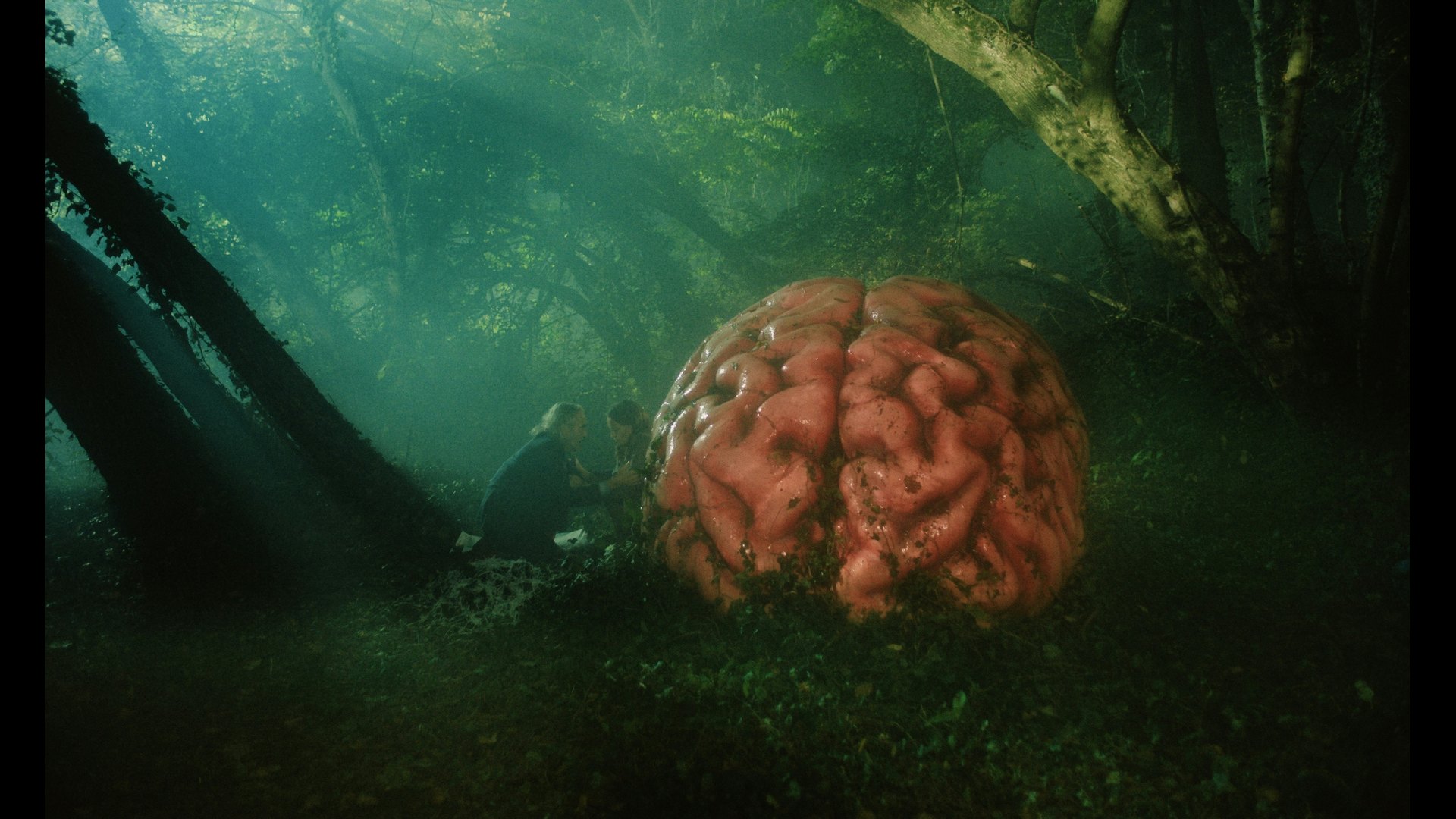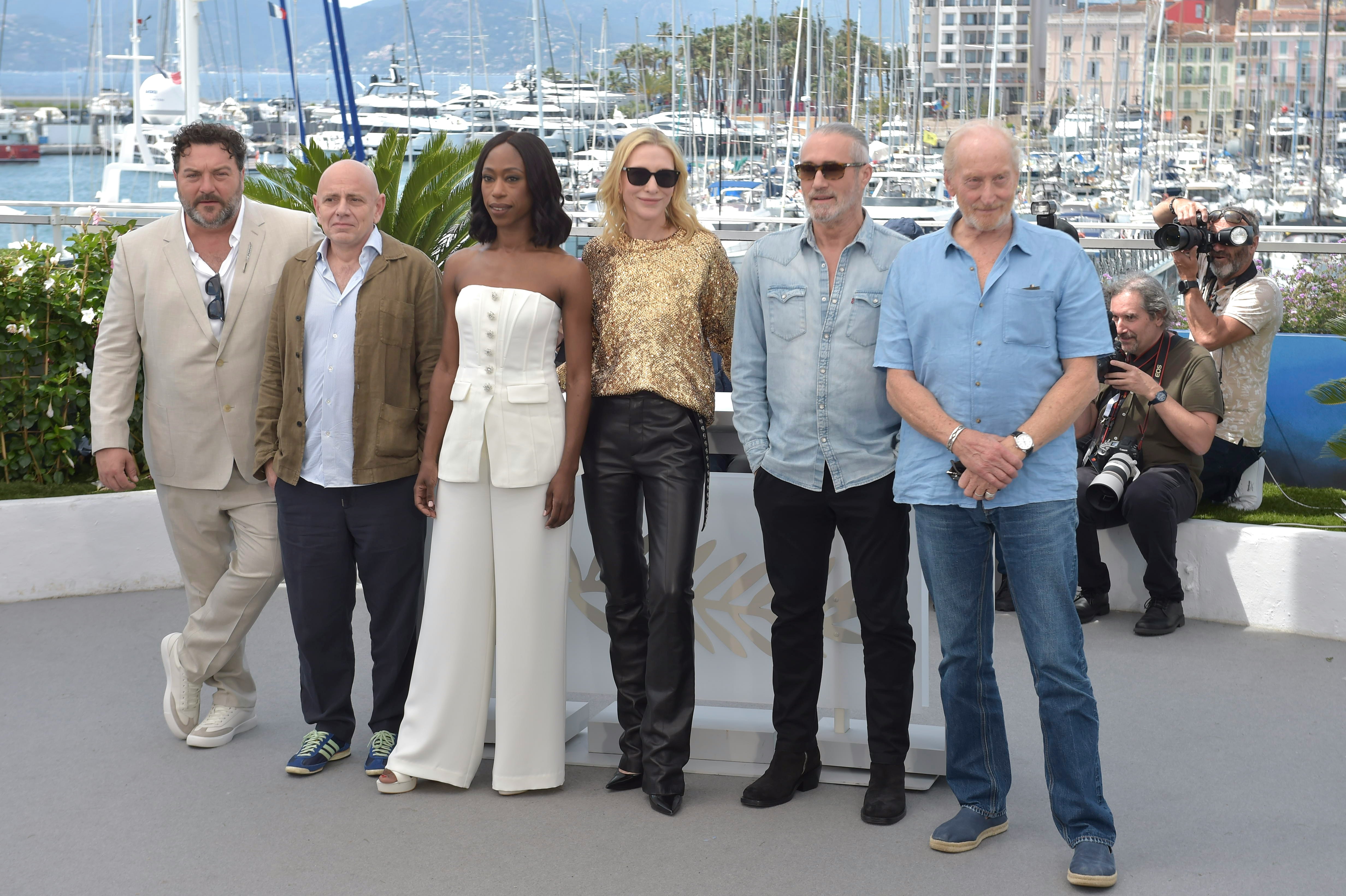
A couple minutes into Rumours, indie auteur Guy Maddin’s outlandish political satire, Canadian Prime Minister Maxime Laplace (an intensely sensual Roy Dupuis) desperately tries to rekindle his relationship with British Prime Minister Cardosa Dewindt (Nikki Amuka-Bird), with whom he’d shared a brief moment of intimacy at the last meeting of world leaders. After she awkwardly turns him down, he stops, crestfallen, as the sound of mournful saxophones blares over the score, suddenly transforming the movie into a torrid drama. It’s a ridiculous moment that sets the stage for the rest of this absurd and hilarious movie.
Set during a G7 summit in Germany, Rumours follows a group of hapless world leaders, led by Cate Blanchett’s stupidly haughty German Chancellor, Hilda Ortmann, as they attempt to draft a joint statement on some unspecified global crisis. But as they go through painstaking efforts to craft announcements that more like confusing word salads, the world appears to end around them.
They first notice it when wine servers fail to appear at the picturesque gazebo where they’re having their luxurious working dinner. Their phones also seem to have stopped working, and the surrounding areas — earlier populated by staff — appear eerily deserted. Most ominously, they see something moving in the woods around them, which French President Sylvain Broulez (Denis Ménochet) is convinced are Iron Age bog corpses the group encountered earlier. Scared and uncertain, they set off into the woods to find help. Their encounters, which include a giant glowing brain and a babbling Alicia Vikander (whose Secretary-General of the European Commission appears only able to speak creepy Swedish prophecies), just get stranger from there.

Until this moment, Rumours plays like a ‘70s Eurotrash movie, all melodramatic musical stings and line deliveries so stiff you half expect an accented voice to be dubbing over the characters. But as the bog zombies start rising, Rumours suddenly transforms into a pulpy ‘50s B-movie, complete with spooky fog and a garishly lit atmosphere courtesy of cinematographer Stefan Ciupek.
Buoyed by Eidnes Andersen’s synthy score — which occasionally brings back those seductive saxes alongside a random deployment of Enya — Rumours achieves a truly bizarre mood, like we’ve all been sucked into a weird liminal space alongside the characters. It’s this chaotic concoction of wildly varying tones and genres that makes Rumours more than a silly modern-day riff on Night of the Living Dead meets Dr. Strangelove. Instead, it’s an eccentric satire that could have only been made by an experimental arthouse madman like Maddin.
The director of absurdist Canadian films like The Green Fog and The Forbidden Room, Maddin’s reunion with co-directors Evan Johnson and Galen Johnson has delivered a truly ludicrous farce befitting the Midnight section where Rumours made its debut at the Cannes Film Festival. If one were to chart some kind of narrative, it wouldn’t hold up to close inspection — the characters wander around the woods before ending up at the abandoned castle they tried to find in the first place — but the film manages to make wheel-spinning an art.
Every new development is more ridiculous than the last (an encounter with an AI chatbot trained to catch pedophiles results in the movie’s funniest moments), and every goofy gag is entertaining (Rolando Ravello’s Italian Prime Minister has a seemingly infinite supply of loose deli meats in his pockets). The only underused ensemble member is Takehiro Hira as Japanese Prime Minister Tatsuro Iwasaki, who plays second-fiddle in both the film’s comedic moments and action beats.
And, of course, there’s the giant glowing brain at the center of the only official image of Runours currently available, and which features in the movie’s bizarre climax. Funnily enough, it’s the least weird part of a very weird movie, whose depiction of politicians scrambling to create a nonsense statement as the world falls apart could certainly be seen as softball political satire. That satire might not amount to much (our world’s greatest leaders are dumb as a brick, who knew!), but it’s in keeping with the film’s oddball tone.
But while Rumours might not be the sharpest satire, at times it feels like it’s the most accurate, bog monsters and giant glowing brains aside. It’s an absurd vision of the political apocalypse at a time when real life has never been more absurd. And at the end of the world, that’s almost a comfort.







